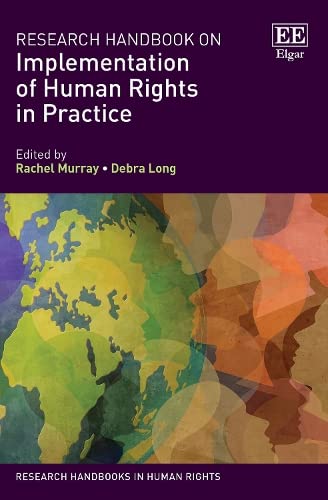Building upon the growing body of scholarship on the factors and actors that influence the extent to which states implement human rights law, this cutting-edge Research Handbook takes an interdisciplinary approach to exploring the roles of actors within supranational human rights bodies, the decisions and judgements they make, and the tools they use to facilitate human rights implementation.
The Handbook arises out of the Human Rights Law Implementation Project, a four-year research grant funded by the Economic and Social Research Council, which was led by the University of Bristol's Human Rights Implementation Centre, in collaboration with the Centre for Human Rights at the University of Essex and Pretoria, the Law School at the University of Middlesex, and the Open Society Justice Initiative.
The collection from eminent scholars and practitioners is framed in three parts. Part I considers relevant terminology, what form reparations take, trends, theoretical and methodological perspectives and strategies. The role of actors, domestic and international, and the interplay between them, are the subject of Part II, and Part III concludes with the tools used to facilitate and monitor implementation.
The HRIC hosted the launch of this new handbook on 5 December 2022. It was chaired by Professor Frans Viljoen (the Centre for Human Rights at the University of Pretoria in South Africa), and featured Professor Clara Sandoval (University of Essex and Global Survivors Fund), Dr Alice Donald (Middlesex University), Mx Anne-Katrin Speck (Ghent University), and Dr Christian De Vos (Physicians for Human Rights and formerly Open Society Justice Initiative).
